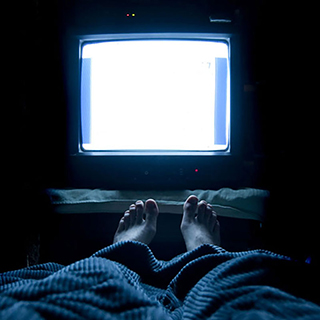2019
Exposure to Light at Night and Obesity

June 10, 2019 - NIEHS researchers are the first to discover an association between any exposure to artificial light at night while sleeping and weight gain in women. The results suggest exposure to artificial light at night may alter hormones and other biological processes in ways that raise the risk of health conditions like obesity. The study was published in JAMA Internal Medicine.
Sleeping with a television or light on in the room may be a risk factor for gaining weight or developing obesity, according to scientists at the National Institutes of Health. The research, published in JAMA Internal Medicine, is the first to find an association between any exposure to artificial light at night while sleeping and weight gain in women.
The research team used data from 43,722 women in the Sister Study, which examines risk factors for breast cancer and other diseases. The results varied with the level of exposure to artificial light at night. For example, using a small nightlight was not associated with weight gain, whereas women who slept with a light or television on were 17% more likely to have gained 5 kilograms, approximately 11 pounds, or more over the follow-up period. The association with having light coming from outside the room was more modest.
The results suggest exposure to artificial light at night may alter hormones and other biological processes in ways that raise the risk of health conditions like obesity. Therefore, cutting off lights at bedtime could reduce women’s chances of becoming obese.
Tags: obesity
Park YMM, White AJ, Jackson CL, Weinberg CR, Sandler DP. 2019. Association of exposure to artificial light at night while sleeping with risk of obesity in women. JAMA Intern Med; doi: 10.1001/jamainternmed.2019.0571 [Full text]
News Release:
Health Topics:


